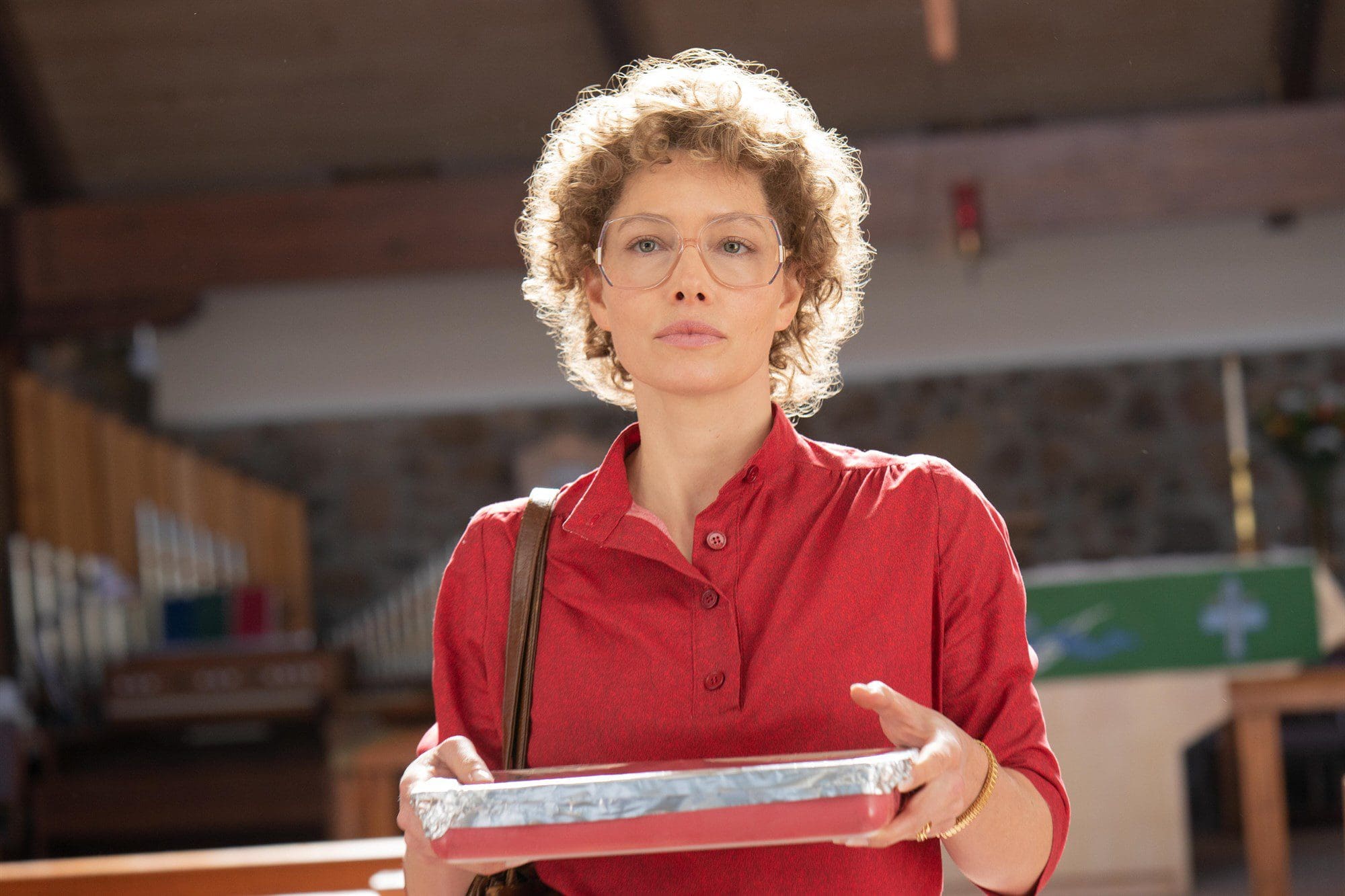
Hulu’s Candy tells the story of Candy Montgomery and Betty Gore with Jessica Biel (The Sinner) starring as the titular housewife and Melanie Lynskey (Yellowjackets) as Betty. While Biel’s performance is impressive and the miniseries has an excellent cast that includes Lynseky, Pablo Schreiber (Halo), Timothy Simons (Veep), and Raúl Esparza (Law & Order: SVU), Candy and Esparza’s Don Crowder are the only interesting characters in the series. As portrayed in this miniseries, everyone in Wylie, Texas is boring and have lives so uneventful that the women live vicariously through those in the midst of divorces and extramarital affairs.
Despite having a premise that would barely sustain a one-hour Dateline episode narrated by Keith Morrison, Candy meanders through Betty and Candy’s lives for the first three episodes. The women are shown taking care of their young children and dissatisfied in their marriages. The lack of action is compounded with writing that jumps around the timeline of these women’s lives.
As a true crime series, we know the story ends with a not guilty verdict for Candy. However, courtroom scenes are teased for most of the series. The only episode that takes place mainly in the courtroom is the last episode, which is also the best episode. It’s the one episode that digs into the crime, Candy’s claim of self-defense, and the fallout of the affair. Had the writers scrapped the first three episodes and combined the last two into a movie, the show could have been turned into a compelling story.
Unlike other true crime stories, there is no mystery in Candy. It’s public record that she had an affair with Allan Gore, killed Betty, and left Allan and Betty’s child alone for hours after the murder. The only doubt is if Candy’s actions were truly in self-defense because attacking someone with an axe 41 times sounds excessive. Unfortunately, there’s no evidence that conclusively shows who picked up the ax first. It’s equally plausible that Candy is lying, yet everyone in the miniseries seems to be at peace with the verdict once the trial is over and alternate theories are never explored. The only person not at peace is Betty Gore’s ghost, who makes an appearance in the courtroom to remind viewers that Candy can make up whatever story she wants as long as it doesn’t contradict the police’s findings, since she’s the only living person who was in that room.
Overall, Candy isn’t worth watching unless you feel compelled to watch or listen to every piece of true crime media. It exists, but you’re not sure why. The case isn’t particularly notable or exciting and few details exist outside of initial reports on the trial. The most fascinating and horrifying part of the miniseries is at the end; Candy Montgomery is out there somewhere as a mental health counselor and appears to show no remorse for her actions. The miniseries goes as far to suggest that Candy killed Betty and went through the public scrutiny so that God would reveal his better plans for her. There’s nothing stopping Candy from committing another crime because she wants to see where God takes her next and that’s the stuff of nightmares.

